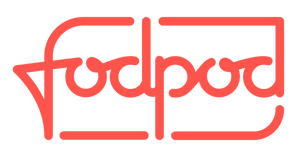
What on earth are FODMAPs?
So you want to know about FODMAPs? Ok, let’s take it from the top...
FODMAPs have always been around in foods, but their effects have only recently been understood. In the early 2000s a team of researchers at Monash University in Australia identified them as being linked to symptoms of gastrointestinal distress. They coined the acronym FODMAP because there was no other common term that described this group of short-chain carbohydrates. (You can read more about Monash University and their pioneering research on their website.)
What exactly are fodmaps?
FODMAPs are sugars (short-chain carbohydrates) and chains of sugars that can be difficult to digest, and which then get fermented in the gut. FODMAPs are not of themselves harmful, but some people have difficulty digesting them which can lead to symptoms such as bloating, nausea, cramps, and diarrhoea.
Some FODMAPs are naturally occurring and are found in lots of different fruits, vegetables, dairy, and grains. FODMAPs can also be added to foods and are found in a wide variety of processed and prepared foods.
All FODMAPs carbohydrates, but not all carbohydrates are FODMAPs. More specifically, FODMAPs include a range of sugars, chains of sugars, and sugar alcohols. Since all FODMAPs are carbohydrates, this means that proteins and fats are zero-FODMAP. Most foods contain mixtures of proteins, fats, non-FODMAP carbohydrates, and FODMAPs, so you'll need to get to know which foods work for you and which don't. This is what the low FODMAP diet aims to help you with.
Ok, FODMAPs are carbs. But I still don’t know what FODMAP means?
Ah, you want the nitty gritty. Well, the acronym lists the different types of problematic carbohydrates:
Fermentable
Oligosaccharides
Disaccharides
Monosaccharides
And
Polyols
Here's a breakdown of what each of these terms actually means:
|
Fermentable |
When the bacteria in your gut feed on FODMAPs they create chemical and gaseous byproducts, leaving you feeling sick and bloated. |
|
Oligosaccharides (OS) [which includes Galacto-oligosaccharides (GOS) and Polysaccharides] |
This means sugars linked in chains. The key culprits in this group are: Fructan (3-10 linked fructose units) Inulin (several linked fructans) |
|
Disaccharides |
Lactose is the only problematic disaccharide, found in many (but not all) dairy products.
Sucrose (aka ordinary sugar) is a disaccharide made of a fructose molecule linked to a glucose molecule, but your gut is able to digest sucrose because of a phenomenon called fructose piggybacking. I repeat – ordinary sugar is FODMAP friendly! |
|
Monosaccharides |
This means fructose, often described as "excess fructose".
Fructose can be absorbed in the gut if it can find a glucose molecule on which to hitch a lift, called piggybacking. If there is more fructose than glucose (excess fructose) then this becomes fermentable. |
|
And |
[Drumroll…] |
|
Polyols |
These sugar alcohols include Erythritol, Inositol, Isomalt, Maltitol, Mannitol, Sorbitol, and Xylitol.
NB Erythritol, the smallest polyol, is not generally considered a FODMAP because most people are able to digest and absorb it sufficiently, but some sensitive individuals may wish to avoid it. |
That all sounds very intimidating. Should I be worried about FODMAPs?
No, FODMAPs are not dangerous at all. All FODMAPs are carbohydrates, and carbohydrates are essential as part of a balanced diet. FODMAPs can become problematic if you have difficulty breaking them down and digesting them as they may be fermented by bacteria, but they don't pose any further risk than that.
Many foods that contain FODMAPs also contain other beneficial nutrients. For this reason the diet aims to help you learn which FODMAPs you can tolerate and in what amounts, so that you can continue to enjoy as varied and nutritious a diet as possible. Just remember to be careful of stacking.
It's a good idea to talk to your doctor or FODMAP qualified dietitian before starting a new diet. Be sure to check out our other articles as well for more info on the Low FODMAP diet and living the Low FODMAP lifestyle.
